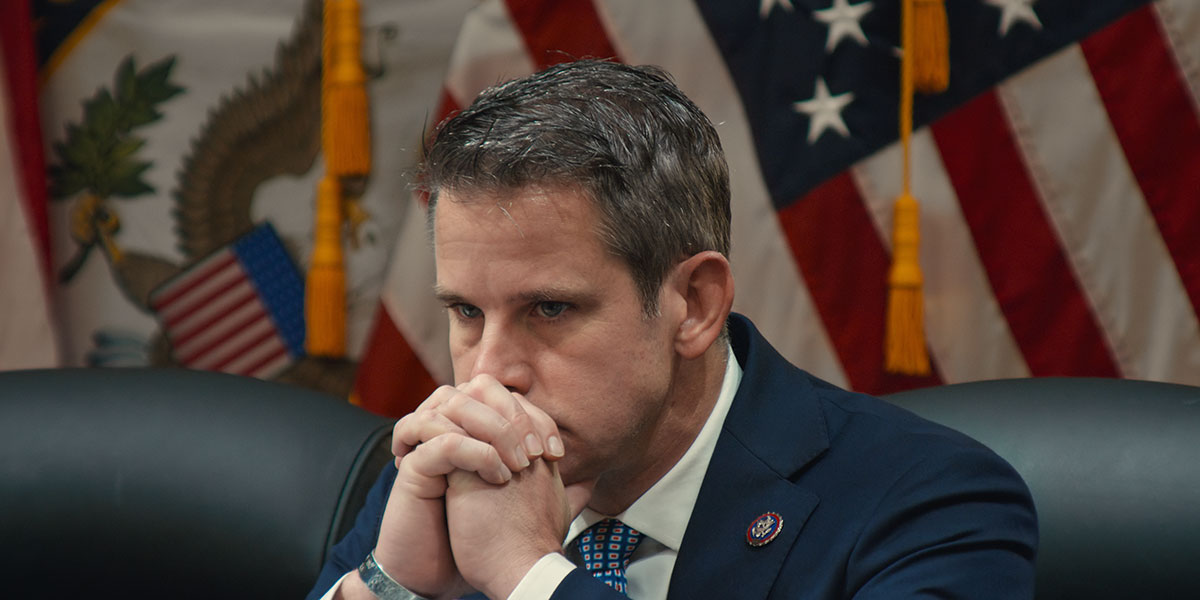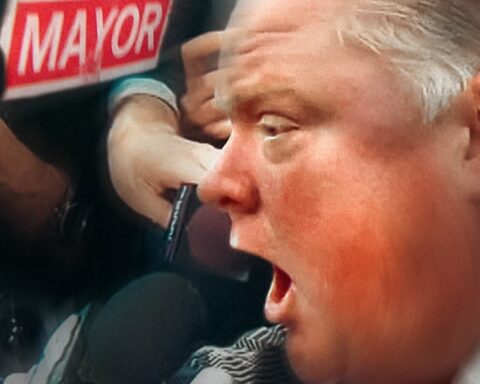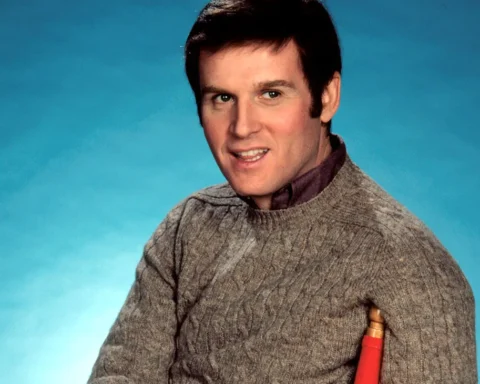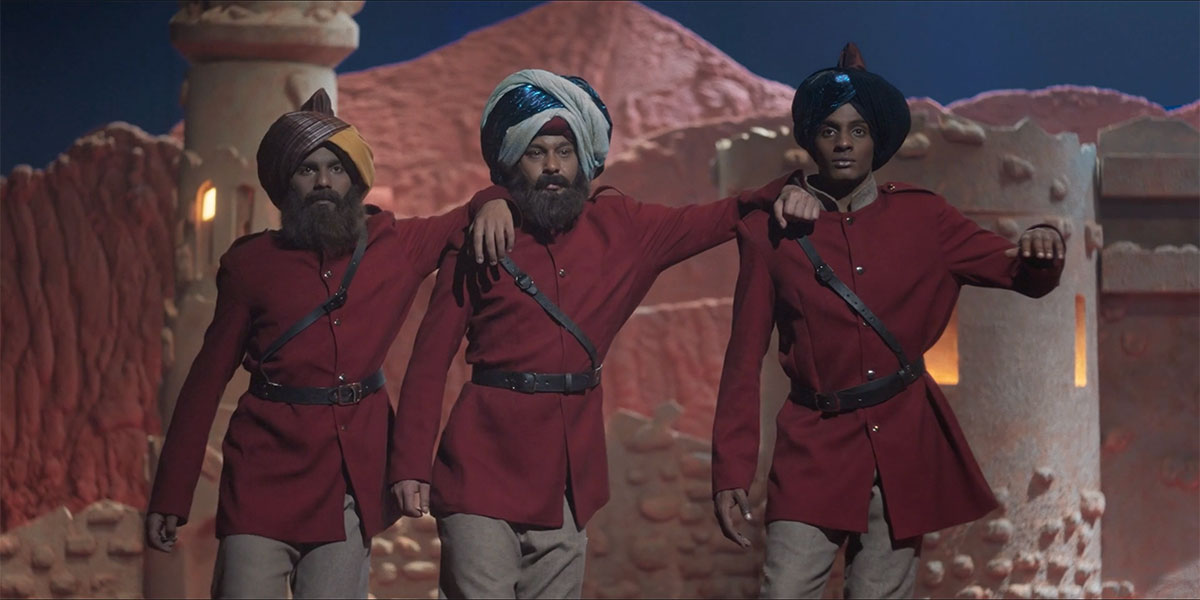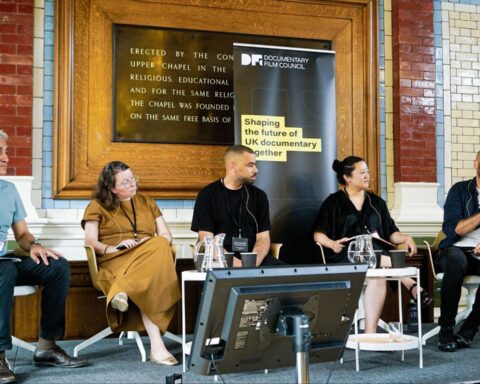The Last Republican
(USA, 90 min.)
Dir. Steve Pink
Programme: TIFF Docs (World premiere)
Former Republican Congressman Adam Kinzinger proves a refreshing antidote to this current era of divisive and polarized politics in The Last Republican. Kinzinger enjoys some jovial sparring matches with his director, Steve Pink, throughout this documentary. The two men come from opposite sides of the political spectrum with Kinzinger proudly upholding a conservative ethos that draws upon his Midwestern roots. Pink, meanwhile, is a “borderline socialist,” or worse, a “Hollywood elite.” And yet in these deeply divisive times, the two men show audiences that thoughtful and civil dialogue between people with opposing political views is indeed possible.
Pink pulls off a rare marvel with this smart and insightful snapshot of America in a polarising age. The film might actually make lefty liberals like a Republican.
Perhaps the coup that Pink achieves with The Last Republican is aided by the fact that Kinzinger happens to be a fan of the filmmaker. The former congressman loves Pink’s raucous comedy Hot Tub Time Machine. He admits that his fondness for the film, about, well, a time machine that’s also a hot tub, convinced him that Pink’s the right man to tell his story about being one of ten Republicans to vote for Trump’s impeachment over the instigating the January 6 insurrection and bringing a voice of conscientiousness and reason to the escalating crazy train called the Republican Party.
And while a comedy that seems like the nadir of Hollywood entertainment doesn’t immediate strike one as the spark for thoughtful, politically engaged cinema, it proves a key ingredient for making Kinzinger deeply relatable. Set aside the men’s basic taste and they’ll surprise you.
Moreover, Pink proves himself a regular Errol Morris. The Last Republican film uses the art of conversation to aspire to an America where political debate serves as a forum to move society forward. Imagine The Fog of War or The Unknown Known as comedies and one gets the sense of what an engaging work this film is.
The film includes a key interview with Kinzinger, moreover, which illustrates the price one pays for speaking out in our present reality. The former congressman sits in his recently vacated office. It’s been stripped of everything: pictures, files, and furniture. All that remains is a brighter patch of carpet that indicates where the desk used to be.
Pink observes Kinzinger during his final year in office to let audiences see what happened when the former congressman refused to toe the party line following the January 6 insurrection. The Last Republican recaps Kinzinger’s shock and revulsion when the leader of his own party lobbed a grenade at the bedrock of democracy, denied the election results, and precipitated a riot on the institution he swore an oath to uphold. Kinzinger gets candid about how doing the right thing and the hard thing are often the same. Cut to shots of an answering machine and Kinzinger’s staffers enduring vitriolic threats from Trump supporters. Kinzinger’s wife, meanwhile, reflects upon the real and immediate threats to their family, which worsened when the Congressman (reluctantly) accepted an invitation to sit on the committee overseeing the investigation about January 6.
Pink doesn’t go the Wikipedia route here, but there’s enough information and context for one to approach the documentary knowing only the gist of the facts. The film instead asks how and why American politics veered so far off the rails that facts, reason, and civility lost their place in the conversation. Novel cutting shows clips of stalwart Republicans like Mitch McConnell disavowing the insurrectionists one minute and then doubling down on support for Trump the next. It’s a brilliant consideration of polarisation and unyielding conservativism that chillingly finds echoes in some of Canada’s own Trump aspirants.
Where the film truly serves as a provocative and refreshing analysis of this polarised age is in Kinzinger’s reflections about his own views. He’s adamant in his conversations with Pink that he hasn’t shifted leftward. The Republicans, he suggests, swung away from him and other conservatives, ultimately forgetting the ideals that are the party’s base.
And he’s a witty, funny, and self-deprecating personality with a politician’s true gift for gab. Whenever Pink lobs him a zinger, he fires one back. But these aren’t mean exchanges, nasty words, or toxic attacks. They’re jokes—funny ones, too—and observations about competing viewpoints. This film is a portrait of what democracy is all about: bringing together opposing perspectives in the service of a common goal.
Perhaps the only drawback is the absence of a hot tub time machine that can take us all back to November 9, 2016. But this film is a documentary and not a Hollywood comedy, so it’s a refreshing reminder that we can’t return to the past, but we can certainly learn from it to save the future.
The Last Republican premiered at TIFF 2024.
Get more coverage from this year’s festival here.
Update (March 2, 2025): The Last Republican opens at Hot Docs Ted Rogers Cinema on March 8.




